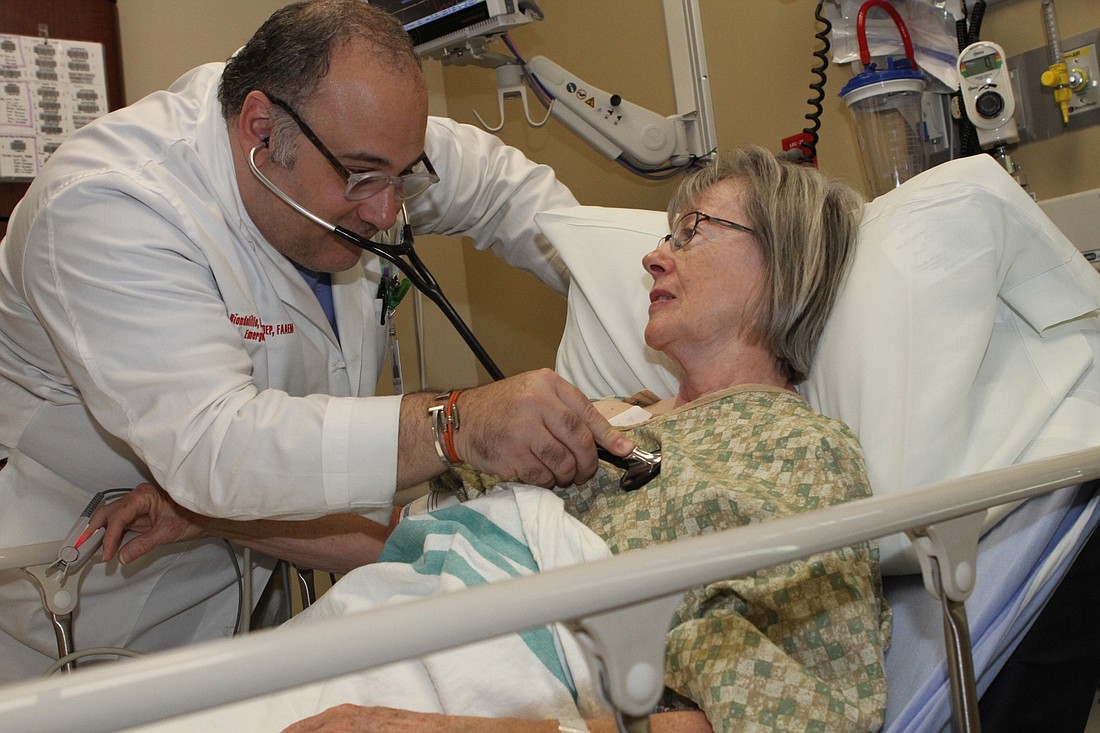- November 19, 2025
-
-
Loading

Loading

Routine preventative wellness visits should be just that: routine. Yet changing guidelines for screenings, such as different opinions on when to start them or how often they should be done, and genetic history can make what should be a routine appointment a confusing and complicated task.
For example, guidelines on cervical cancer screenings for women have changed from every year to once every three years to once every five years for some women. Or take mammograms, which screen for breast cancer. Although federal guidelines recommend women start having a mammogram at 50 years old, the American Cancer Society recommends starting at 45, and the American College of Radiology recommends 40.
If you have history of breast cancer in your family, you might want to start even earlier or have a more complete scan, such as a 3D mammogram or an MRI.
The dreaded colonoscopy to scan for colon and rectal cancer follows a similar pattern: federal guidelines advise 50 years old, but the ACS recommends starting at 45.
So why are there different guidelines, and why do they keep changing?
One theory, according to Dr. Steven Merandi, a breast imaging specialist at Sarasota Memorial Hospital, is the government guidelines, issued by the Centers for Disease Control and Prevention, might prioritize optimizing costs rather than outcomes.
“Their recommendations are to start screenings at age 50, which is 10 years later, and then every other year,” Merandi said. “We believe it’s a movement to decrease the cost of Medicare providing some of these services. That’s a theory, … but when you cut the screenings in half, you cut the expenditures. We believe it may be influenced by politics and finances.”
Changing guidelines means it's important for patients to know the earliest recommended guidelines, as well as their family history to ask for earlier screenings than the general population. Most preventative screenings have been developed because there is a chance to change the outcome and allow patients to lead healthier lives.
For example, although one in eight women get breast cancer and 40,000 women die from it each year — making it the No. 2 cause of death for women — it can be cured in almost all cases with early detection.
“I like to think we’re in a 95-98% cure rate for breast cancer,” Merandi said. “But obviously, to get that cure rate, we have to find the cancer early, when it’s small and treatable.”
Aside from cancer-specific screenings, routine wellness checks with your doctor can help spot precursors, such as high body weight, diabetes, high cholesterol and high blood pressure, which lead to bigger problems long term.
Dr. Frank Biondolillo, the medical director of the emergency department at Doctors Hospital of Sarasota ER, receives countless patients suffering from pain and illness each week. He said high blood pressure is one of the worst culprits that contributes to greater sickness, such as heart attacks, strokes and coronary artery disease.
“A lot of these [problems] compound each other,” Biondolillo said. “[High blood pressure] runs in your family. Next thing you know, you have diabetes mellitus or high cholesterol.”
It doesn’t help matters that patients sometimes don’t follow the instructions they’re given, whether that be skipping medication, not following the right diet or failing to exercise and live healthy.
The historical wisdom is that high blood pressure sets in around middle age — the blood vessels become more stiff, and pressure goes up — but Biondolillo said he’s seen a worrying trend where much younger patients come in with blood pressure far worse than the desired 120 over 80.
“We’re seeing patients come in younger and younger,” he said. “I had a patient come in a couple of days ago who was 28 with a blood pressure of 199 over 120. … You’re going to be on dialysis by the time you’re 40.”
The best course of action — beyond living a healthy, active lifestyle to offset stagnation — is to be aware of your family's genetics and predisposition to high blood pressure and to come in for routine checkups, Biondolillo said.